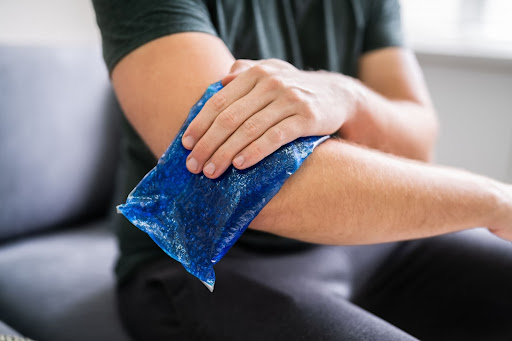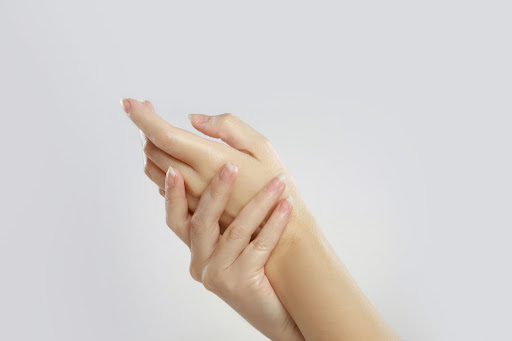Introduction
When the skin comes in contact with a substance perceived as a threat to the skin, it can get allergic reactions like itchy skin, redness, dry skin, cracked heels that can cover your entire body, or just a few areas of your body.
You cannot always prevent skin problems while swimming or bathing, using perfumes with fragrances, wearing artificial jewelry or synthetic clothing, getting bitten by wasps or bees, and consuming food additives.
There are effective remedies to treat allergic reactions that can sometimes be unavoidable.
Soothing and calming the skin with natural remedies is the best way to treat skin allergies as it causes no side effects and is a reliable method for long-term skin protection and healing.
Here are five distinct natural tips for treating skin allergies.
1. Ice therapy

Hold an ice pack for 10-15 minutes over your patches to ease your pain or itchiness, remove toxins, and heal damaged tissues in case of an insect bite, swelling, or a burn. A thin cloth between the ice pack and your skin can numb the pain. A hot water bath or shower makes the itchiness worse, so it is better to avoid it during this time.
2. Oatmeal or baking soda bath

One of the most skin-friendly remedies is bathing with baking soda or Colloidal oatmeal, which has antioxidants and anti-inflammatory properties that soothe irritation and provide relief from skin rashes. Once you’ve taken the colloidal oatmeal bath, apply a fragrance-free moisturizer on your skin to lock in the barrier.
To make an oatmeal bath at home, use a food processor to convert the oatmeal into a fine powder, then stir it with lukewarm bathing water. The gel-like consistency lubricates the skin and protects it from allergens. Soak yourself in the bath for 10 to 15 minutes. Soon after that, pat yourself dry gently with a towel and apply a fragrance-free moisturizer. Repeat this process two to three times every day.
Another way of treating your skin naturally is by adding half a cup of baking soda to a tub of lukewarm water. Soak in it for 30 minutes. You can also add 1 cup of oatmeal or 2-3 tablespoons of virgin olive oil to bath water for additional benefits. It acts as a natural antiseptic and cleanses the skin. Apply a natural moisturizer such as Franch Oil NH* Plus to seal the hydration. If you soak for a long time, you might end up with dry skin.
3. Go baggy

Wearing loose and baggy clothes will help you heal naturally. During winters, the skin gets itchy with warm sweaters. Tight jeans might cause redness due to constant scratching. It’s also important to watch out for the material while buying clothes to avoid itchiness.
4. Moisturize your skin daily

Moisturize your skin regularly as a remedy for skin allergies and rashes. Make your skin even more soothing by covering it with a cloth. For example, for dry and scaly feet, after you moisturize your feet, make sure to cover them with soaks.
A moisturizer free of parabens, acids, and dyes is essential to apply to the skin. Franch Oil NH* Plus, by Franch Global Health Care LLP, is a natural moisturizer. Franch Oil NH* Plus prevents your skin from damaging further and protects it from dampness. Moisturize your skin twice a day and drink at least 8-ounces of water daily.
5. Consuming natural supplements

Natural supplements can assist in reducing skin problems like psoriasis. Omega 3 fatty acids regulate the skin’s oil production, subdue breakouts and improve balanced hydration, making the skin look younger. One such Omega 3 nutritional supplement like OG-3 Veg Softgels, can have a soothing effect on irritated skin and skin with dermatitis.
In conclusion, stock up food rich in Vit C seasonally, like berries, lemon, grapefruits, and oranges, which will reduce the impact of skin allergies. Anti-inflammatory food, foods high in quercetin like apples, broccoli, spinach, cherries, helps reduce the level of histamine in your body. Taking care of your skin and diet will treat your skin better. Practicing good skincare techniques is key to clear and smooth skin.